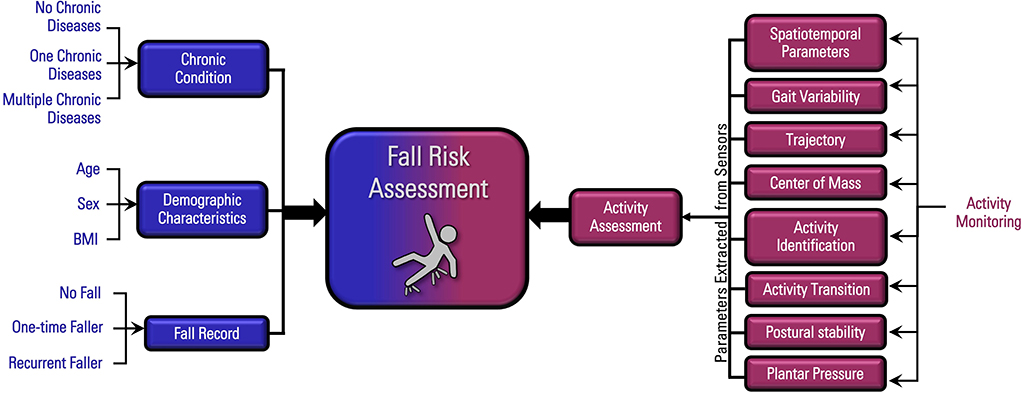The 20-Second Trick For Dementia Fall Risk
Table of ContentsThe Only Guide for Dementia Fall RiskExamine This Report on Dementia Fall Risk5 Simple Techniques For Dementia Fall RiskThe Greatest Guide To Dementia Fall RiskSome Of Dementia Fall Risk
In the area, inadequate road lights or unprotected creeks and garbage dumps may likewise cause mishaps. Autumns Danger Assessment Tool (FRAT) is a 4-item falls-risk screening tool for sub-acute and residential care. The FRAT has three areas: drop threat status, danger aspect checklist, and action strategy. A Loss Threat Condition consists of data about background of recent falls, medicines, psychological and cognitive status of the client.If the patient scores on a threat element, the equivalent variety of points are counted to the client's fall risk score in package to the far ideal. If a person's autumn danger score amounts to five or greater, the individual is at high threat for falls. If the person ratings just 4 points or lower, they are still at some threat of dropping, and the nurse should utilize their finest medical assessment to handle all autumn danger variables as component of an alternative care strategy.
These typical strategies, in basic, aid develop a secure setting that lowers unexpected drops and defines core preventive actions for all people. Indicators are important for patients at threat for drops.
Dementia Fall Risk for Dummies
Wristbands should consist of the client's last and initial name, day of birth, and NHS number in the UK. Information need to be printed/written in black against a white background. Only red color needs to be used to signal special client standing. These referrals are consistent with existing advancements in person identification (Sevdalis et al., 2009).
Items that are too much might need the person to connect or ambulate unnecessarily and can potentially be a risk or add to falls. Assists prevent the client from heading out of bed with no help. Registered nurses react to fallers' phone call lights much more quickly than they do to lights initiated by non-fallers.
Visual disability can substantially cause drops. Keeping the beds closer to the floor reduces the threat of falls and severe injury. Positioning the mattress on the floor significantly lowers loss danger in some health care settings.
Our Dementia Fall Risk Ideas
Patients who are tall and with weak leg muscular tissues who attempt to rest on the bed from a standing position are likely to drop onto the bed due to the fact that it's also low for them to reduce themselves safely. Additionally, if a tall patient efforts to obtain up from a low bed without support, the individual is likely to drop back down onto the bed or miss the bed and fall onto the floor.
They're made to promote prompt rescue, not to next page avoid drops from bed. Distinct alarms can likewise remind the person not to rise alone. The usage of alarm systems can also be an alternative to physical restraints. Besides bed alarms, enhanced guidance for high-risk people likewise may help prevent drops.

Patients with a shuffling gait boost loss chances considerably. To lower fall risk, footwear should be with a little to no heel, slim soles with slip-resistant tread, and sustain Home Page the ankle joints.
The Single Strategy To Use For Dementia Fall Risk
Patients, especially older grownups, have actually decreased aesthetic capacity. Illumination an unknown environment aids increase visibility if the patient should stand up at night. In a study, homes with adequate illumination report fewer drops (Ramulu et al., 2021). Enhancement in illumination in the house might decrease autumn rates in older adults (Dementia Fall Risk). Making use of stride belts by all health and wellness treatment service providers can promote security when aiding clients with transfers from bed to chair.

Sitters work for assuring a secure, safeguarded, and secure environment. Research studies showed really low-certainty evidence that caretakers decrease fall danger in severe care healthcare facilities and only moderate-certainty that choices like video clip surveillance can decrease caretaker use without enhancing loss threat, recommending that sitters are not as beneficial as initially thought (Greely et al., 2020).
Getting The Dementia Fall Risk To Work

Boosted physical conditioning minimizes the danger for falls and limits injury that is sustained when fall takes place. Land and water-based workout programs might be similarly beneficial on balance and gait and thus reduce the risk for drops. Water workout may contribute a favorable advantage on balance and stride for females 65 years and older.
Chair Rise Exercise is a basic sit-to-stand exercise that assists strengthen the muscle mass in the upper legs and butts and enhances flexibility and freedom. The goal is to do Chair Rise workouts without utilizing hands as the client comes to be more powerful. See resources area for an in-depth guideline on exactly how to do Chair Increase workout.